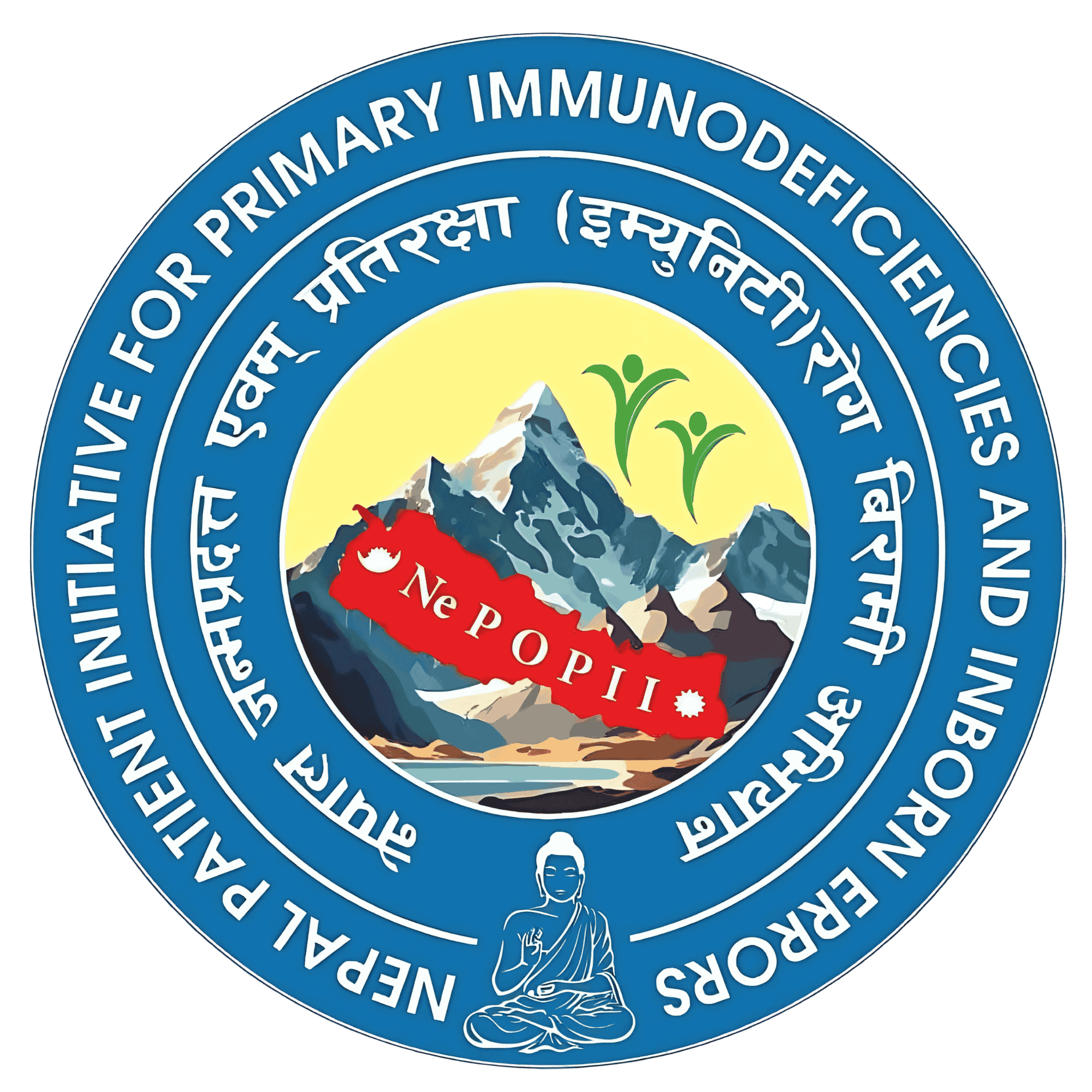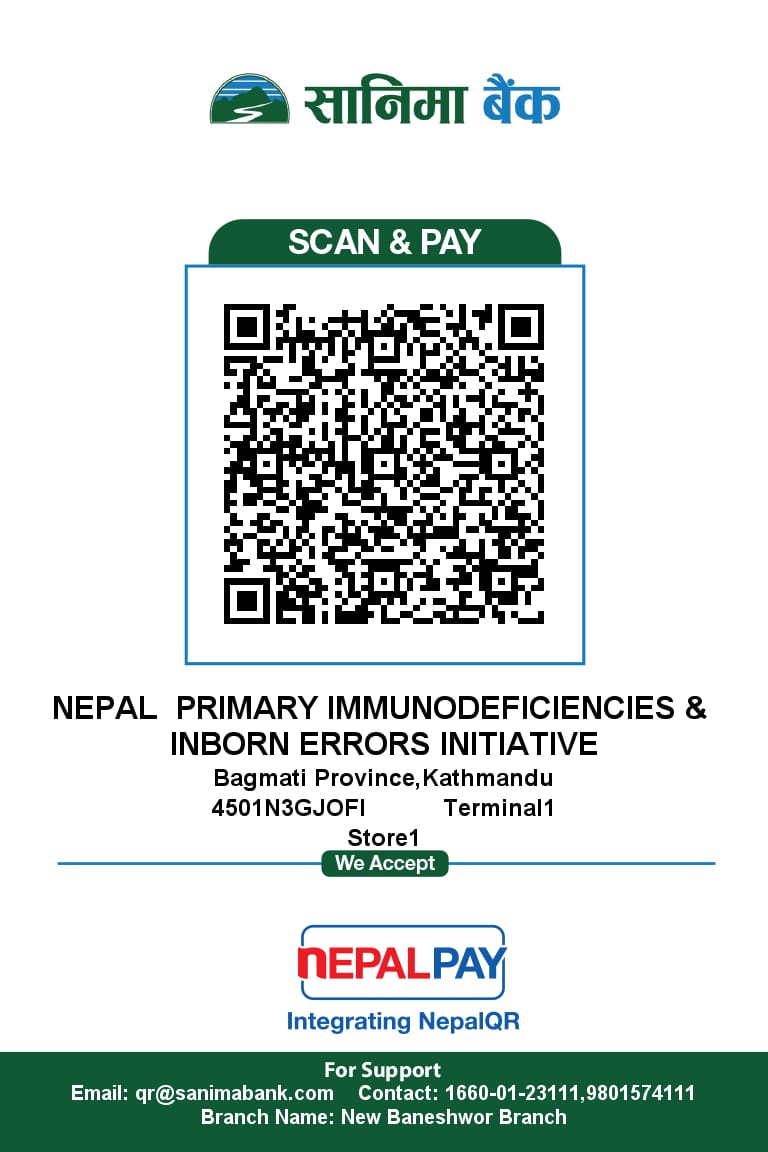Together for Awareness, Early Diagnosis, and Access to Care
Children and families with rare immune disorders in Nepal deserve early diagnosis, proper care, and hope for a healthier life. Your support can change their future.
The Nepal Primary Immunodeficiency and Inborn Errors Initiative (NePoPI) is a volunteer-led, patient-centered movement in Nepal working to improve the lives of people living with Primary Immunodeficiency (PID) and Inborn Errors of Immunity (IEI).
Born out of personal experiences, delayed diagnoses, and lack of awareness, we bring together patients, parents, doctors, and supporters to make rare immune disorders visible and ensure better care, compassion, and policy change.
LEARN MORE ABOUT US
What Are Primary Immunodeficiencies and Inborn Errors of Immunity?
Primary Immunodeficiencies (PIDs) and Inborn Errors of Immunity (IEIs) are genetic conditions where the body's immune system is missing or doesn't work properly. People with these disorders often suffer from frequent, long-lasting, or unusual infections — and may be misdiagnosed for years.
Without early diagnosis and proper treatment, children and adults with PID can face life-threatening complications.
Early diagnosis and regular treatment (like IVIG, BMT, or antibiotics) can lead to a normal, healthy life for many patients.
Common Signs of PID:
- •Frequent ear, throat, chest, or skin infections
- •Infections that don't improve with standard treatment
- •Poor growth or weight gain
- •Family history of similar illness
- •Need for frequent antibiotics or hospitalization
Who We Are
Our Objectives

1. Raise Awareness
- •Educate the public, schools, and healthcare providers about PID/IEI.
- •Share real patient stories through social media, local campaigns, and community talks.
- •Celebrate World Primary Immunodeficiency Week and other awareness events.
2. Promote Early Diagnosis
- •Encourage doctors and health workers to consider PID/IEI when facing recurrent infections in children and adults.
- •Distribute translated "10 Warning Signs of PID" in Nepali.
- •Support patients with referrals and diagnostic information.


3. Advocate for Access to Treatment
- •Push for the inclusion of IVIG, BMT, and PID-related care in public health services.
- •Campaign for free or subsidized medications, especially IVIG and antibiotics.
- •Raise issues of cross-border care and support for government-backed referral systems.
4. Support Patients & Families
- •Build a community for emotional and peer support.
- •Offer guidance on managing treatment, side effects, and navigating the system.
- •Share information about hospitals, labs, and organizations that help.


5. Foster Collaboration
- •Partner with doctors, hospitals, and global organizations (like IPOPI) for technical guidance and advocacy.
- •Engage with media, researchers, and public health leaders for wider outreach.
How You Can Help
NePoPI welcomes anyone who wishes to support our mission. Even small actions can make a big difference.
- •Share our awareness posts
- •If you're a doctor or nurse – help with diagnosis/referrals
- •Help us translate, design, or manage social media
- •Provide educational or research support
- •Donate (when possible) to support families in crisis
- •Volunteer – with your time, voice, or connections
Together, we can change the future for patients with PIDs in Nepal.
GET INVOLVEDWorking Together for Better Care
We aim to partner with doctors, hospitals, researchers, and global organizations like IPOPI to bring expertise and better care for patients in Nepal.
Get In Touch
Ready to make a difference? Contact us to learn how you can support our mission.
This form is currently under development. Please contact us directly at nepalnpopi@gmail.com for any inquiries.
Support Our Mission
Scan the QR code to make a direct donation and support families in need.
